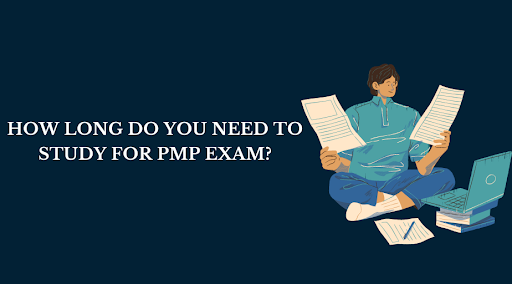Do you want to gain the most popular Project Management Certification PMP Certification?And wondering How hard is the PMP Exam.Well! Read this blog, and you will no longer have to worry. Project Management Professional (PMP) credential is a internationally recognized credential demonstrating project management proficiency. Authorised by the Project Management Institute (PMI), the PMP Certification signifies that an individual has met the rigorous standards of knowledge and experience required to lead and manage projects successfully.
Project Management is an essential component of any organization, and having a PMP Certification can help individuals stand out in the job market and demonstrate their commitment to their profession. The certification can open doors to new career opportunities, higher salaries, and increased job security.
Additionally, the PMP Certification is essential for organizations that want to ensure they have the right talent to deliver projects successfully. By hiring individuals with PMP Certification, organizations can be confident that their project managers have the knowledge, skills, and experience to lead their teams to success.
Understanding the PMP Exam
The PMP Exam is a four-hour computer-based test with 200 multiple-choice questions based on five process groups. There are two sections, with 89 and 111 questions, respectively, and a 10-minute break in between. Questions are situational and test understanding of project management principles, not recall. Candidates should allocate two minutes per question and review flagged questions.
Factors Affecting Study Time
Preparing for the PMP Certification exam requires significant time and effort. Time required to prepare for the exam depends on several factors, including:
Your familiarity with project management concepts:
Individuals with previous experience with project management concepts may need less time to study for the exam. However, those new to the field may need more time to study and understand the core concepts.
Your work experience:
Your work experience plays a critical role in determining the amount of time you need to prepare for the exam. If you have experience leading and managing projects, you may already understand the core concepts and may need less time to study. However, suppose you have limited experience in project management. In that case, you may need to study more to ensure you understand the concepts and can apply them in real-world scenarios.
Availability of study time:
Another critical factor is the amount of time you have available to study for the exam. Individuals who work full-time jobs and have family responsibilities may have limited study time, impacting the time needed to prepare for the exam.
In summary, several factors can impact the time needed to prepare for the PMP Certification exam. These include your familiarity with project management concepts, work experience, and availability of study time. Understanding these factors can help you plan your study schedule effectively and prepare for the exam successfully.
Recommended Study Time
PMI, the organization that administers the PMP Certification exam, recommends that candidates spend at least 35 hours studying for the exam. However, this is just a minimum recommended study time, and many candidates may require more time to prepare for the exam adequately.
Other expert recommendations vary based on the individual’s experience and familiarity with project management concepts. Some experts suggest that candidates with more than three years of project management experience may need 80-120 hours of study time, while candidates with less experience may need up to 200 hours.
The recommended study time for the PMP Exam varies based on experience and familiarity with project management concepts. Developing a study plan based on your availability can help you effectively prepare for the exam and increase your chances of success.
Tips for Effective Studying
The PMP Certification exam preparation process takes a lot of time and work. The following are some pointers for efficient study:
Resources for studying:
The PMBOK Guide is the main resource for studying for the PMP test. Many other study resources are also available, including books, online classes, and study guides. It is crucial to select study materials that suit your requirements and learning style.
Practice tests and quizzes:
Practice tests and quizzes help individuals evaluate their understanding of project management concepts and identify knowledge gaps. Practice tests and quizzes can help individuals understand the exam format and build confidence.
Study groups and study partners:
Studying with others can be beneficial because it allows you to ask questions and discuss project management ideas. Finding a study partner or joining a study club can keep people accountable and motivated.
Time management and self-discipline:
Effective time management is critical when studying for the PMP Exam. Creating and sticking to a schedule can help individuals manage their time effectively. Self-discipline is also essential, as it is easy to get distracted when studying.
In summary, effective studying for the PMP Certification exam requires using study materials, taking practice tests, joining study groups, managing time effectively, and maintaining self-discipline. Implementing these tips can help individuals prepare for the exam successfully.
Conclusion
PMP Certification is a valuable certification that can enhance your career opportunities in project management. Preparing for the exam requires dedication and commitment, but the rewards are well worth the time and effort. With the tips provided in this article, you can prepare effectively and achieve success on the PMP Certification exam.


